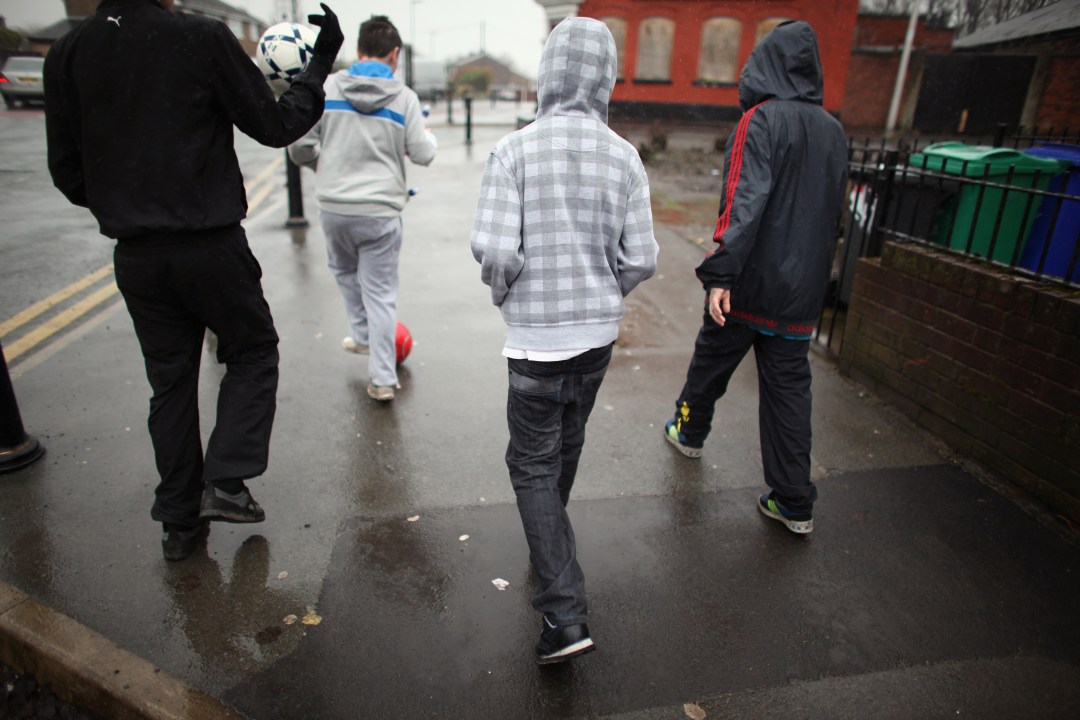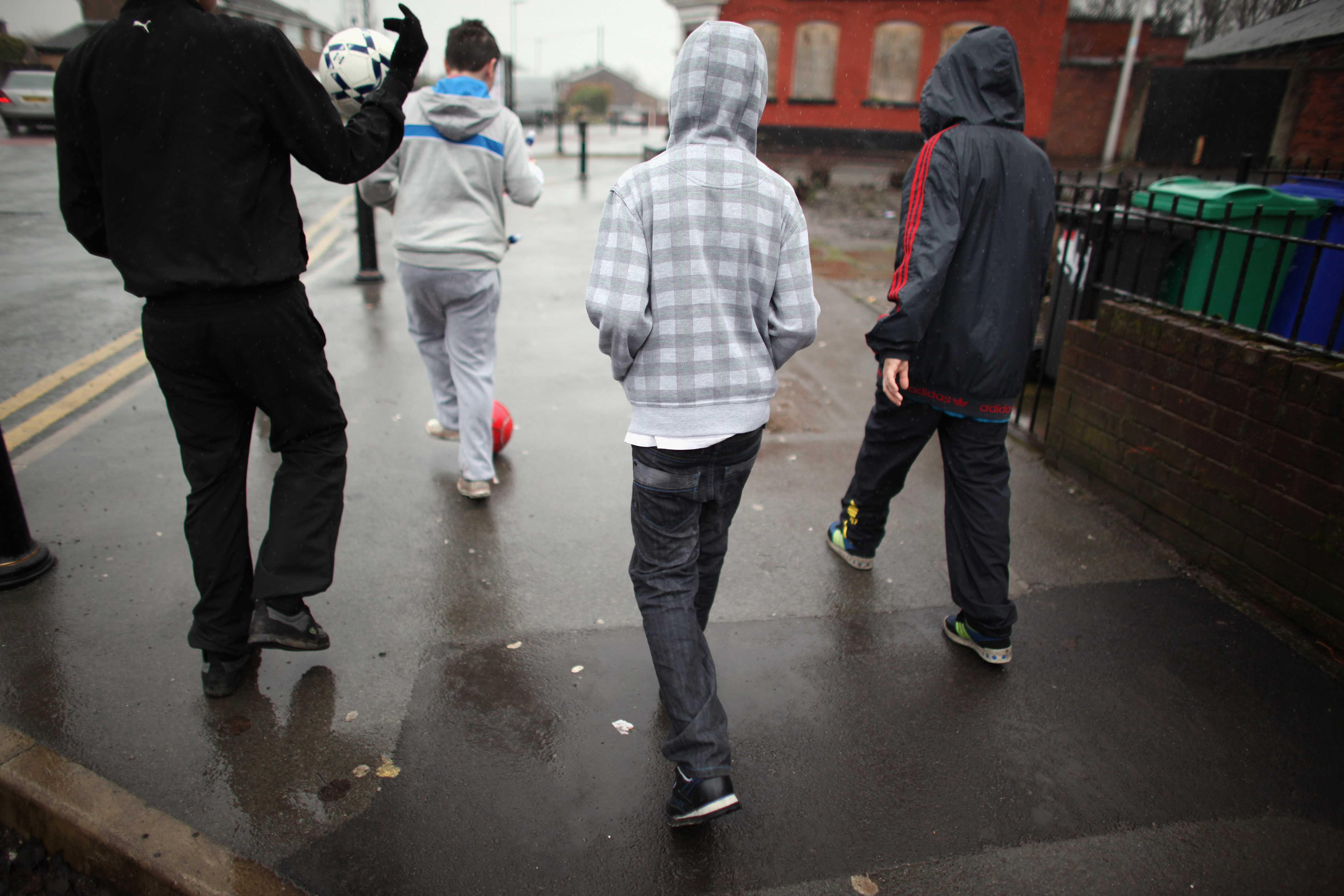My Daily Telegraph column today is about how poverty is a greater
problem in Britain than racism, which I describe as an ‘almost-vanquished evil’. This has drawn some criticism, not least from those asking (understandably) what a white guy like me can
know about racism. Not much, but plenty of academics have done a hell of a lot of work into racism in Britain (including two brilliant, young academics, Matt Goodwin and Robert Ford). And their studies present a far
brighter picture than we’re used to. The abject failure of the BNP is not just down to Nick Griffin being a plumb — it’s because he tried to hawk a racist message to the most tolerant
country on earth. CoffeeHousers may be interested on why I think this is so. Here are five points:
1. Racism dying amongst younger age groups. The British Social
Attitudes survey asks people if they would mind having an Asian or black boss. Here are their answers, broken down by year of birth:

Which is to say, objections are collapsing. Another indicator — perhaps the most reliable — is intermarriage. According to an analysis of the Labour Force Survey, 48 per cent of Afro-Caribbean men are in relationships
with women of a different race. One in five under-16s are from minority or mixed ethnic groups, one in ten live in mixed-race households. The idea of ethnic dividing lines is becoming almost
anachronistic, whether you’re talking about Enoch’s references to the ‘black man having the whip hand’ or Dianne Abbot’s claim that ‘white people use divide and
rule’. Her younger constituents would find that baffling, rather than offensive. It is bigotry from another era.
2. Racism dying in British neighbourhoods. A fairly standard assumption in discourse about race is Prof Robert Putnam’s theory that mass immigration by different ethnic groups will
make neighbourhoods more suspicious of each other. As he
put it, ethnic mix will make people ‘distrust their neighbours’ of whatever race.
Maybe in America, but not here. A massive study involving 25,000 interviews was conducted to see if this applies for Britain. Staggeringly — and in a way that reflects brilliantly on modern
Britain —Putnam’s thesis proved incorrect. A University of Southampton study showed no trace of
ethnic mix as a factor in neighbourhood cohesiveness. If anything, a wider ethnic mix in poorer areas meant that people trusted each other more. Britain has levels of tolerance which defy social
scientific understanding.
3. Racism dying as a political force. In theory, the BNP should have a bumper year in 2012, with far right parties on the ascendant across Europe. Mass unemployment is the Petri dish on
which all manner of social evils are incubated, racism included. But the BNP was destroyed in London in the 2010 general election, failing even to come second in any seat. It is now pulling out of
the capital, and repositioning itself as a Midlands-based anti-Islamic party. It wasn’t the courts that forced the BNP to drop racism, it was the British voters.
4. There is no racial element in British gangs. I’ve had a few people question my assertion that British gangs have no ethnic dimension, given the heavy media coverage of black
gangs. In America, gangs certainly have an ethnic dimension — they’re disproportionately black, Latino or whatever the prevailing minority is in the area. In Britain, we certainly have
a gang problem and one academics are (belatedly) beginning to study. But the research shows something rather extraordinary: race is not a factor. The membership of British gangs reflects the ethnic
mix of the community. We saw this with the Edinburgh Study on Youth Transitions and Crime, and the 2004 Offending Crime and Justice Survey. Most recent is the
‘Youth Gangs in an English City’ two-year project, funded by the ESRC. It concludes: ‘in predominantly white areas, we found gangs were mostly white; in areas with the highest
concentration of black ethnic minorities, we found gangs that were mostly black’. There is now a fair bit of available data, summarised in a 2009 Manchester University study. As it concludes:
‘Gangs arise in areas of deprivation, and their ethnic composition reflects the composition of the neighbourhoods that spawn them.’
Don’t expect to read much about this in the newspapers: the idea of ‘black gangs’ is a far better story for everyone — whether they want to demonise or patronise. But the
idea of racial minority gangs in Britain is not supported by any of the extensive research.
5. So where is the British Colin Powell? CoffeeHousers may remember Tony Blair comparing America favourably with Britain:
‘I think of a black man, born in poverty, who became chief of their armed forces and is now secretary of state, Colin Powell, and I wonder frankly whether such a thing could have happened here.’
Set aside the fact that the British military is one of the last remaining engines of social mobility in this country. Colin Powell, for all his poverty, had a pretty good education in a Bronx school whose alumni include a former US Attorney (Benito Romano), an inventor (Peter Karter), a Congressman (Frank A. Oliver) and others. That’s
the Bronx, so what about Brixton? What can a ‘black man, born in poverty’ expect here? For ‘poverty’ lets take the definition of someone who qualifies for free school meals,
and see how the various races fare:

The above table is staggering. The real segregation in British society is between the rich and the poor: those poor enough to qualify for free school meals are given a pretty crappy education. A
poor black child in 2010-11 (after education spending in Britain had more than doubled) still stood a one-in-three chance of getting five basic GCSEs. The fact that poor white kids stand a
one-in-four chance hardly makes it better.
A couple of years ago the former head of the Runnymede Trust, Samir Shah, wrote for us about
how racism is not the main factor holding black Brits back. There is a race relations industry which pushes racism as a defining factor in public life, he said, but, in truth, other factors are now
at play. Focusing too much on the ghost of a near-vanquished evil risks diverting our attention from factors that could far better help black children — who are disproportionately likely to
be poor.
This is not to say that racism is dead. It remains a social evil that needs to be confronted. But poverty (which, in Britain, tends to be accompanied by a poor education) is a greater evil. On race
relations, our country has a huge amount to be proud of. On poverty, the battle is only beginning.








Comments